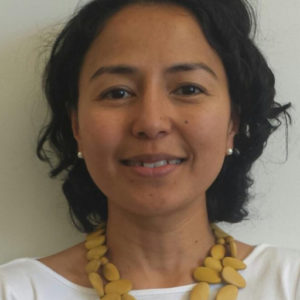DANIELLE NOHRA talks to a geriatrician about the special needs of vulnerable older people in the face of the coronavirus virus and how they can avoid minimise their chances of being infected.
WHILE the coronavirus continues to spread in the ACT and across the nation, more than ever, now’s the time for Canberrans to look out for the needs of older people in the community, says geriatrician and general physician Dr Mary Ann Kulh.

“Many older Canberrans are sitting at home, watching news of the virus on television and becoming anxious or depressed,” says Dr Kulh of COVID-19, an infectious disease detected in Wuhan, China, and first reported to the World Health Organization in late December.
Dr Kulh, who works out of More than Medicine in Braddon, says Canberrans can reach out to high-risk seniors, aged 65 and above, by offering to go to the shops or markets for them or keeping an eye on their health.
“Some of our frail Canberrans may have difficulty getting out of the house to stock up on essential supplies,” she says.
“[And] older people over the age of 65, generally, as experienced in China and Europe, have a higher mortality rate [in the face of the coronavirus].”
The rate, however, is a big grey area at the moment, according to Dr Kulh, who says not everyone that’s suffered from the COVID-19 illness has been tested, which means they can’t get an accurate case fatality rate.
But regardless of the exact statistics, Dr Kulh says the mortality rate in older people is higher.
And, she says the risks are even higher for older people with comorbidities, which are other chronic diseases or illnesses such as diabetes, heart disease or lung disease.
The other group of older people at risk are people who have a weak immune system such as people with rheumatoid arthritis and autoimmune diseases, she says.
“It’s more their frailty that determines their risk of getting disease rather than their age,” she says.
“But at the moment we know that older people, full stop, are more likely to get the coronavirus, so it’s safer for all older people to take precautions.”
One of these precautions is, even though there’s no vaccination for COVID-19 yet, to be vaccinated against the flu when it comes out in April, Dr Kulh says.
“If they get the flu, their immune system might be weakened and then they might get COVID-19 on top of that,” she says.
She says this will also help prevent overwhelming the health care system with another pandemic.
The federal government has announced a ban on non-essential static gatherings with more than 500 people, and Dr Kulh agrees saying large group gatherings should be avoided by seniors as a precaution, too.
“The numbers are likely to change, too, it just comes down to common sense,” she says.
Usually Dr Kulh’s patients tell her about celebrating big birthday milestones, and she recommends older people reconsider large gatherings for significant birthdays for now.
In general, Dr Kulh says people should practice what the federal government is calling social distancing, which they recommend standing a metre and a half away from people.
“Even if they’re in a doctor’s waiting room, it’s important to practice that there, too,” she says.
At the moment, she says general practices are okay for seniors to keep going to because they have not recorded a COVID-19 case yet but she urges seniors to avoid walk-in clinics and fever clinics such as the Weston Creek Walk-In clinic which recorded the first coronavirus case in Canberra.
“Another way to reduce virus transmission is to wash your hands for at least 20 seconds with soap and water or use alcohol-based hand sanitiser,” she says.
And if seniors are struggling to get access to hand sanitiser, Dr Kulh says they should speak to their local pharmacist and see if they can source it for them.
“I also recommend that seniors make their wishes known to their loved ones about what sort of medical care they would like,” she says.
It’s important they have an advanced care plan in case they end up in hospital, she says.
And, the community can help older people, too, says Dr Kulh, who recommends unwell family, friends or community to not visit older people whether they’re in a nursing home or in their own home.
“Regular visitors need to be vigilant with social distancing, not visiting if they have symptoms of fever or respiratory illness, or are generally unwell, make sure they wash their hands and use alcohol-based hand sanitiser,” she says.
“At the moment the Australian government hasn’t said don’t visit family in nursing homes but this might change. Find out from the nursing home first what their rules are. The same goes for people visiting older people who are in hospital as well.”
Dr Kulh also advises that people monitor the symptoms in older people they look after or are close to.
“We can look out to see if they’re unwell with not just the typical symptoms of fever, cough and shortness of breath, but also be aware that older people might present symptoms in other ways such as delirium,” she says.
“They could also start to have falls when they don’t usually.”
For anyone worried about symptoms that they think might be the coronavirus, Dr Kulh says contact the coronavirus health information line on 1800 020080 and they will let people know what to do if they’re unsure.
Who can be trusted?
In a world of spin and confusion, there’s never been a more important time to support independent journalism in Canberra.
If you trust our work online and want to enforce the power of independent voices, I invite you to make a small contribution.
Every dollar of support is invested back into our journalism to help keep citynews.com.au strong and free.
Thank you,
Ian Meikle, editor





Leave a Reply